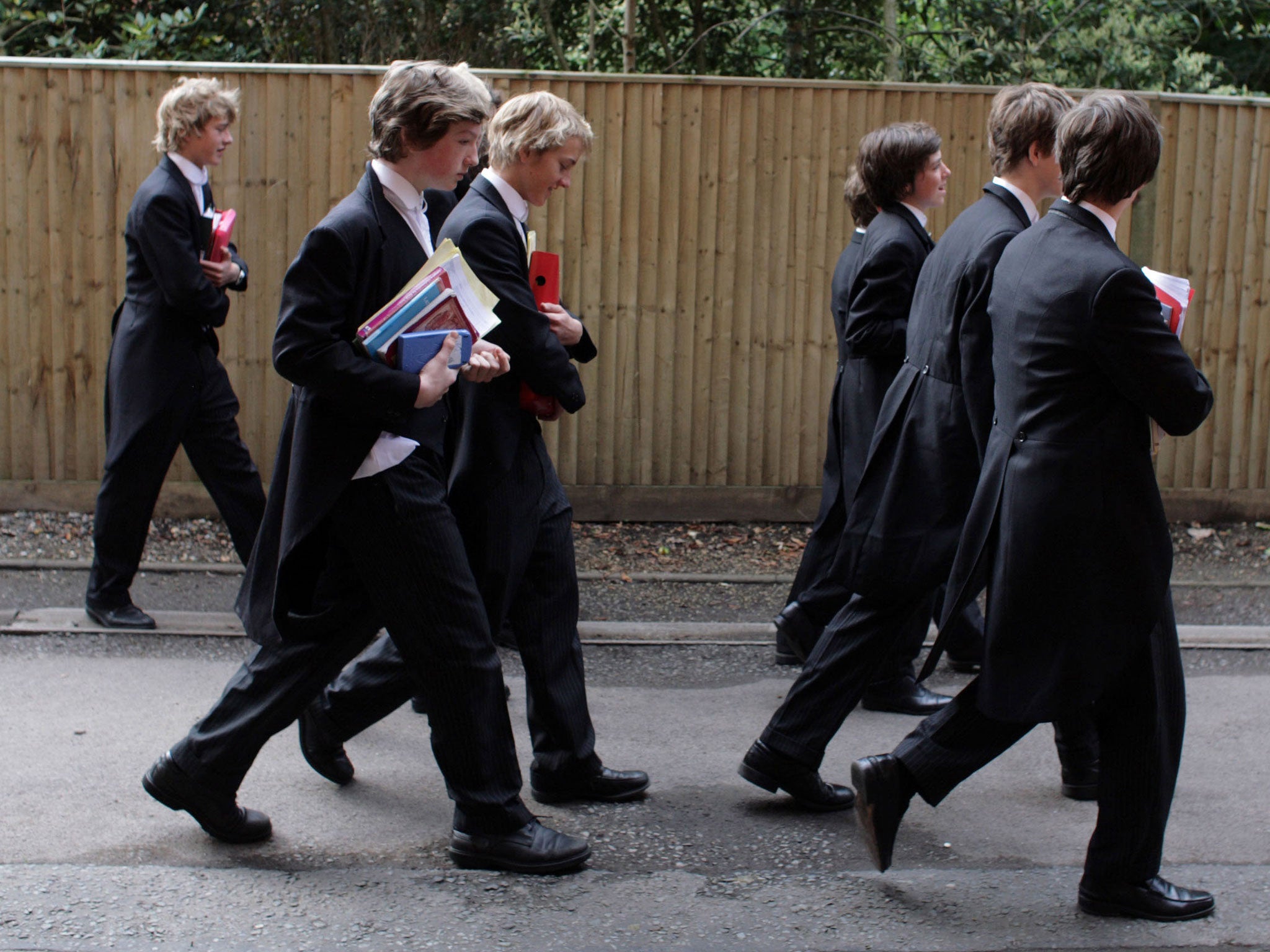You want to get an Eton scholarship? All you need to do is answer four (not so simple) questions
Application test included questions on the morals of killing protesters, ancient Persian thinkers and translating sentences in a made-up language

Your support helps us to tell the story
From reproductive rights to climate change to Big Tech, The Independent is on the ground when the story is developing. Whether it's investigating the financials of Elon Musk's pro-Trump PAC or producing our latest documentary, 'The A Word', which shines a light on the American women fighting for reproductive rights, we know how important it is to parse out the facts from the messaging.
At such a critical moment in US history, we need reporters on the ground. Your donation allows us to keep sending journalists to speak to both sides of the story.
The Independent is trusted by Americans across the entire political spectrum. And unlike many other quality news outlets, we choose not to lock Americans out of our reporting and analysis with paywalls. We believe quality journalism should be available to everyone, paid for by those who can afford it.
Your support makes all the difference.It might not be such a great leap of faith for the applicants - but children taking one of Eton’s entrance examinations were asked to imagine they were the Prime Minister.
Given Eton’s track record of producing 19 of them - including the present incumbent David Cameron - it could well have been on their parents’ minds when they encouraged their children to sit the exam.
The next part of the question was a touch more difficult, though. They had to write a script for a TV broadcast in which they defended the killing of 25 protesters by the Army after sending in the troops to quell protests.
They had to say why the decision was both “necessary” and “moral” in the wake of the protesters killing police officers as they ransacked public buildings after an oil crisis in the Middle East led to the UK running out of petrol.
Good training for high office, though. Perhaps you could call it a form of work experience.
The question was one of four in a 2011 general paper sat by 13-year-olds seeking one of the 14 places a year set aside for King’s Scholarships - where at least 10 per cent of the fees is subsidised,
Tony Little, Eton’s headmaster, stressed the style of question differed little from a GCSE English exam question which asked: “Imagine you are Lady Macbeth, write a diary entry to express your feelings on receiving your husband’s letter?” Probably more applicable to Roedean’s entrance exam, that one, though.
It was then followed by a quiz about a made-up language called Jangli in which the pupils were given several phrases in the fictitious language and their translation into English - the pupils had to work out which word meant what. They then had to write their own sentences in Jangli and translate them into English.
It may be no coincidence - given there are old Etonians in prominent positions both in the Cabinet and advising Education Secretary Michael Gove (one of his special advisers Henry de Zoete is one) - that this principle of made-up words has now found its way into the English testing system. After all, the new reading check for six-year-olds demands they spell made-up words to demonstrate their understanding of phonics.
The rest of the test, which lasts 90 minutes, covers maths plus their understanding of the relationship between an inspirational teacher and his pupils. Again, good preparation as - hopefully - they’ll meet a number of them during their school days.
Eton says of the scholarship papers (the general paper is just one of four compulsory tests the candidates will take - the others are in English, maths and science): “In most papers of the examination there is a wide range of questions, so that any clever boy has ample opportunity to prove his worth: the examiners are keen to reward boys who show real ability, even if only in a limited field (i.e in running the country).” My parenthesis.
The format, though, has been changed for this year with two general papers - the second of which gives more freedom for more creative writing. One of the essay topics is “happiness”.
Now here’s a possible question for next year: Imagine you are a member of the Bullingdon Club - what does happiness mean to you?
The Scholarship paper questions included:
1. Twenty-five protesters have been killed by the Army. You are the Prime Minister. Explain why employing the Army against violent protesters was the only option available to you and one which was both necessary and moral.
2. Consider the following sentences in Jangli (a made-up language) with their English translation:
Waldan razu - I am a writer; Had waldan razu - I am the writer. Write down how you express the following in Jangli - the.
3. Applicants read a speech by inspirational teacher Zarathustra to his pupils and are asked what is meant by the following phrase: "You are my believers: but what do believers matter"?
4. If today is Friday, what is the day that follows the day that comes after the day that precedes the day before yesterday?
Join our commenting forum
Join thought-provoking conversations, follow other Independent readers and see their replies
Comments